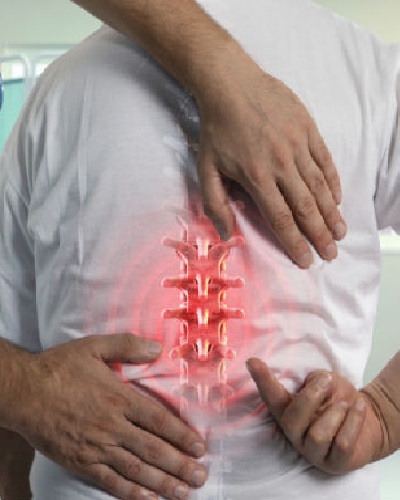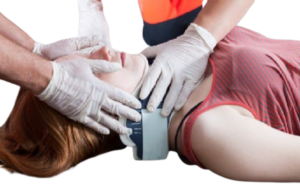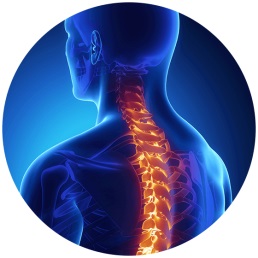Spinal Injuries Symptoms & Treatment Options
Spinal injuries occur when any of the structures that support your spine suffer unexpected injury or chronic damage. These structures include: spinal vertebrae, the spinal cord, spinal nerves, intervertebral discs, and supporting tissues (like muscles, tendons, or ligaments).
Your spinal column is the central supporting pillar of your body. It facilitates the movement of your torso, supports the skull and brain, and protects your nerve fibers. In addition, your spine provides the scaffolding that enables your rib cage to protect your internal organs.
Furthermore, composed of 33 interlocking vertebrae, your spine serves as a multifaceted shock absorber for your entire body. Your spinal discs provide an additional lubricating cushion to your vertebrae. And, a vast network of muscles and tendons provides support to your spine.
Most importantly, your spinal column acts as a protective tunnel to encase your spinal cord. The spinal cord is the main thoroughfare across which your brain and body transmit messages. Spinal nerves branch out from the spinal cord, exiting through passageways in vertebrae to innervate all regions of the body.
Needless to say, the spine plays a crucial role in our everyday lives. This becomes especially noticeable when our backs aren’t functioning properly. In fact, back pain is a leading contributor to loss of productivity at work and missed work days. And, worse still, spinal injuries can cause you to miss out on important life events, and cause depression, anxiety, and/or insomnia.
Types of Spinal Injuries
Is Spinal Injury is the cause of my pain?
Neck Strains & Sprains
A common injury, neck strains & sprains occur when muscles, ligaments, or tendons in the neck endure tearing or inflammation. Car accidents, sports injuries, and failure to warm up before exercise can all cause neck strains & sprains. Additionally, symptoms can vary depending upon the extent of the damage. But, typically, warning signs will include some degree of pain or stiffness while moving the head. Many of these injuries heal without surgical intervention.
Whiplash
Whiplash is a well-known term, which is most often associated with rear-end collisions. However, many people don’t realize that any sudden jerking movement of the head can cause whiplash. During a whiplash injury, the muscles, ligaments, and tendons of the neck sustain damage. Sometimes patients also have disc herniations as the consequence of Whiplash. Common symptoms include stiffness and tingling, as well as neurological symptoms such as headaches, dizziness, and fatigue. In severe cases, weakness and breathing problems can occur.
Spinal Cord Injury
Of the spinal column injuries, injury to the “cord” has the most potential to wreak lasting damage. Remember that your spinal cord is responsible for facilitating the brain’s communication with the rest of your body. When the spinal cord suffers an injury, partial or complete blockage of nerve signals can occur. As a result, total loss of movement, or paralysis, in the limbs can follow. Additionally, numbness, tingling, or muscular spasms can coincide along with bladder or bowel malfunction.
When Spinal Injuries Are A Problem
As a matter of fact, approximately 80% of adults will experience some form of spinal injury during their lifetimes. Whether because of daily activities or sudden accidents, these injuries can result in debilitating pain and long-lasting consequences.
And, yet, it is true that many sprains will heal themselves given time and the administration of ice, heat, or NSAID medications. However, for stubborn, excruciating, or incapacitating spinal injuries, your condition will require evaluation by a qualified medical professional. A physician can help you avoid sustaining further damage to your spine and prevent a gradual worsening of your symptoms.
More about Dr. Matin
Spinal Injuries Symptoms & Treatment Options
Spinal injuries can be treated by Dr. Martin, give us a call to schedule an appointment.
We will provide different options of treatment.
Spinal cord decompression
When and injury leads to herniations, dislocations, fractures or bleeding, nerves and or spinal cord can experience compression. If suffering from compression your physician will perform intently an urgent or emergent surgery to deal with your condition and avoid persistent pressure and long term damage.
Laminectomy
A laminectomy can release painful pressure on a pinched nerve or compressed spinal cord. Your lamina is a bony structure on the backside of your vertebra that encases the spinal cord. Along with laminectomy other structures can also be thinned out or remove to achieve safe nerve decompression.
Minimally Invasive Spinal Fusions
A variety of surgical options depend upon the location of the injury. A spinal fusion can restore stability to the spine and alleviate pain created by compression of spinal cord and nerves. Fusion options may include minimally invasive ACDFs, ALIFs, PLIFs, or TLIFs.
Conservative Therapies
These may include a number of pain-relieving, anti-inflammatory, and steroidal medications or injections. Additionally, your doctor may recommend complementary therapies such as physical therapy, chiropractic care, acupuncture, yoga, or gentle exercise.






